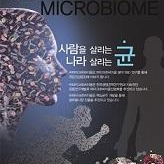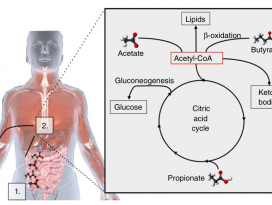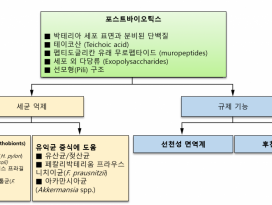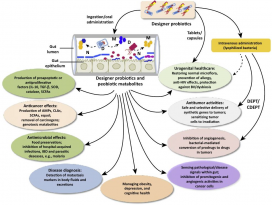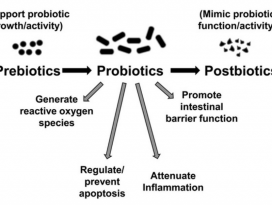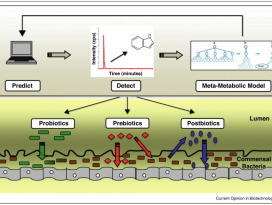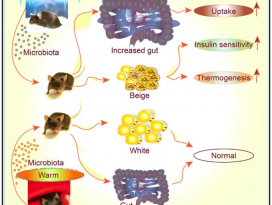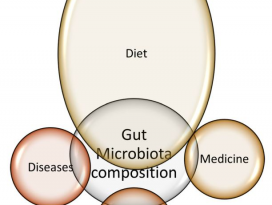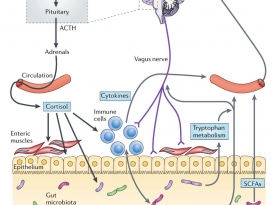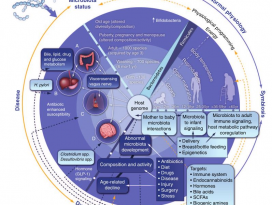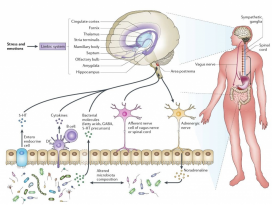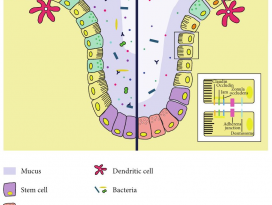[Gut Microbiome] Regulation of the stress response by the gut microbiota: Implications for psychoneuroendocrinology
- e 1458
Regulationof the stress response by the gut microbiota: Implications for psychoneuroendocrinology
Timothy G. Dinan,John F. Cryan
Alimentary PharmabioticCentre, University College Cork, Cork, Ireland
| There is now an expanding volume of evidence to support the view that commensal organisms within the gut play a role in early programming and later responsivity of the stress system. The gut is inhabited by 10e13 – 10e14 micro-organisms, which is ten times the number of cells in the human body and contains 150 times as many genes as our genome. It has long been recognised that gut pathogens such as Escherichia coli, if they enter the gut can activate the HPA. However, animals raised in a germ-free environment show exaggerated HPA responses to psychological stress, which normalizes with monocolonisation by certain bacterial species including Bifidobacterium infantis. Moreover, increased evidence suggests that animals treated with probiotics have a blunted HPA response. Stress induces increased permeability of the gut allowing bacteria and bacterial antigens to cross the epithelial barrier and activate a mucosal immune response, which in turn alters the composition of the microbiome and leads to enhanced HPA drive. Increasing data from patients with irritable bowel syndrome and major depression indicate that in these syndromes alteration of the HPA may be induced by increased gut permeability. In the case of irritable bowel syndrome the increased permeability can respond to probiotic therapy. Detailed prospective studies in patients with mood disorders examining the gut microbiota, immune parameters and HPA activity are required to throw further light on this emerging area. It is however clear that the gut microbiota must be taken into account when considering the factors regulating the HPA. |
제목
장내 미생물의 스트레스 반응 조절: 정신 신경 내분비학에 대한 시사점
내용
장내에서 공생하며 살아가는 미생물들은 초기 프로그래밍과 추후 스트레스 시스템의 반응성에 영향을 미친다는 견해를뒷받침하는 증거가 최근 증가하고 있다. 장에는 10조에서100조 개에 달하는 미생물이 살고 있는데, 이는 인체 내세포 수의 10배이며 우리 게놈(유전자) 보다 150배 더 많은 유전자를 포함한다. E. coli와 같은 병원균이 장내에침입하면 시상하부 – 뇌하수체 - 부신 (HPA) 축을 활성화할 수 있다는 것은 오랫동안 알려져 온 사실이다. 그러나무균 환경에서 자란 동물은 비피도박테리움 인팬티스 (Bifidobacterium infantis)를 포함한 특정 박테리아 종의 단일 서식으로 표준화되는 심리적 스트레스에대해 지나친 HPA 반응을 보인다. 나아가, 여러 증거들이 프로바이오틱스 치료를 받은 동물은 HPA 반응이 무뎌짐을시사한다. 스트레스는 장 투과성을 증가시켜 박테리아 및 박테리아 항원이 상피 장벽을 뚫거나 장 점막의면역 반응 활성화가 이루어지게 하며, 이는 결국 미생물 구성을 변화시켜 강한 HPA 반응을 이끌어낸다. 과민성 대장 증후군 (IBD) 및 주요 우울증 환자에 대한 데이터의 증가는 해당 증후군에서의 HPA의변화가 장 투과성 증가에 기인할 수 있음을 나타낸다. 과민성 대장 증후군의 경우 장 투과성의 증가는프로바이오틱 치료법에 반응할 수 있다. 새로이 부상하는 해당 분야가 더욱 주목을 받을 수 있도록, 장내 미생물, 면역 매개 변수 및HPA 활성에 대해 조사하여 기분 장애 환자에 대한 상세한 전향적 후속 연구가 이루어져야 한다. 그러나, HPA를 조절하는 요인을 고려할 때 장내 미생물을 고려해야 한다는 것은 명백하다.
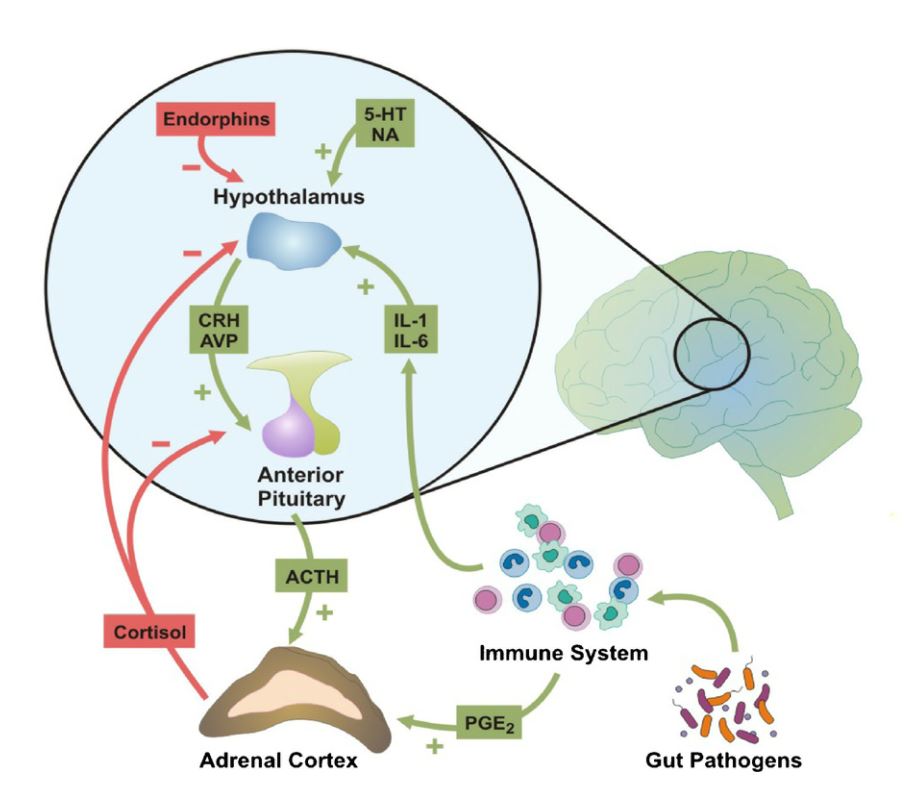
Figure 1 At a hypothalamic level classic neurotransmittersand cytokines
regulate corticotrophin releasing hormone (CRH) and vasopressin(AVP) release into the portal vasculature.
시상하부 수준에서, 일반적인 신경 전달 물질 및 사이토카인은 부신 피질 자극 방출 호르몬 (CRH)과 항이뇨호르몬 (AVP)이 문맥 혈관계 (the portal vasculature)로 방출되는 것을 조절한다. ∙∙∙(Psychoneuroendocrinology, 2012)
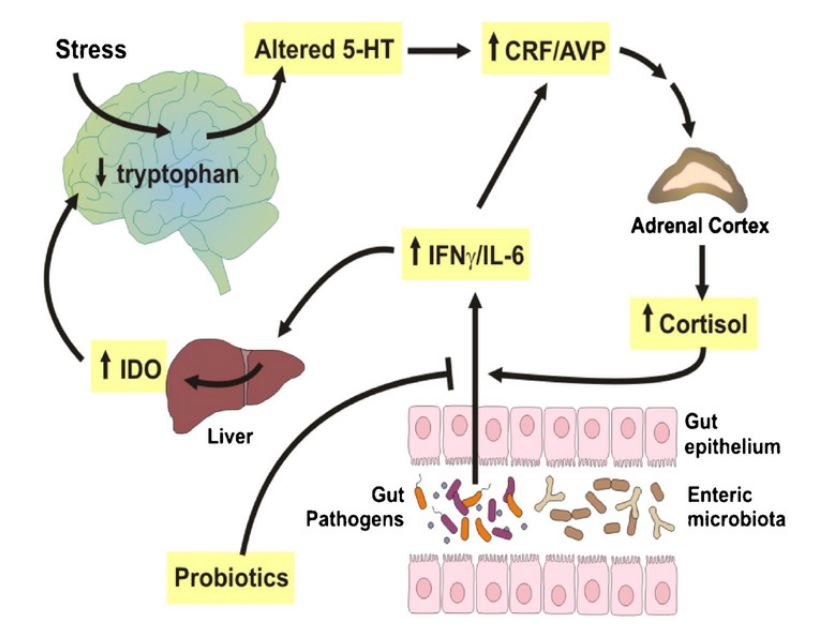
Figure 2 Stress can alter barrier function in the gutincreasing gut ‘leakiness’ and leading to an increase
in pro-inflammatorycytokines which in turn can alter indoleamine 2,3-dioxygenase (IDO) activity.
스트레스는 장내 장벽 기능을 변화시켜 장누수를 증가시키고 전 염증성 사이토카인의 증가를 유도하여,
인돌아민2,3-이산소화효소 (IDO)의 활성을 변화시킬 수 있다. ∙∙∙ (Psychoneuroendocrinology,2012)
Keywords
: #Brain-gut axis #Microbiome#Microorganisms#Microbes #Microbiota #GutMicrobiome #GutMicrobiota#Hypothalamic-Pituitary-AdrenalAxis#HPA #HPAresponses #HPAaxis #Probiotics #Germ-free #Stress #GutPermeability #Psychotropics#Depression
#장뇌축 #뇌장축 #마이크로바이옴 #미생물총 #미생물군 #미생물유전자 #장내미생물 #장내미생물총 #장내미생물군 #시상하부–뇌하수체-부신축 #HPA축#HPA반응 #프로바이오틱스 #유익균 #무균 #스트레스 #장투과성 #장투과 #항정신성 #우울증
[출처: Dinan, T.G., & Cryan, J. F. (2012). Regulation of the stress response by the gutmicrobiota: implications for psychoneuroendocrinology. Psychoneuroendocrinology, 37(9), 1369-1378.]
|
| ㈜마이크로바이옴 ㈜마이크로바이옴은 생명공학 최고의 기술력을 바탕으로 마이크로바이옴 산업의 성장과 발전의 선도적 역할을 하고 있는 대한민국 대표 마이크로바이옴 R&D 전문 기업입니다. ㈜마이크로바이옴은 생명공학 국가연구기관인 한국생명공학연구원과 마이크로바이옴 관련 상품에 대하여 공동연구개발 및 기술이전을 통하여 공동특허 출원과 마이크로바이옴 상품화에 성공하였고, 마이크로바이옴 글로벌 기업이 되기 위하여 연구개발을 지속하고 있습니다. |
| no. | 제목 | 조회수 |
|---|
㈜마이크로바이옴 ㅣ 서울시 서대문구 연희로 77-12 영화빌딩2층
Tel :02-322-0302 l Fax : 02-322-0759
Copyright (c) Microbiome. Co. All Rights Reserved.

